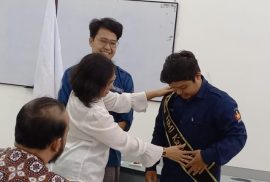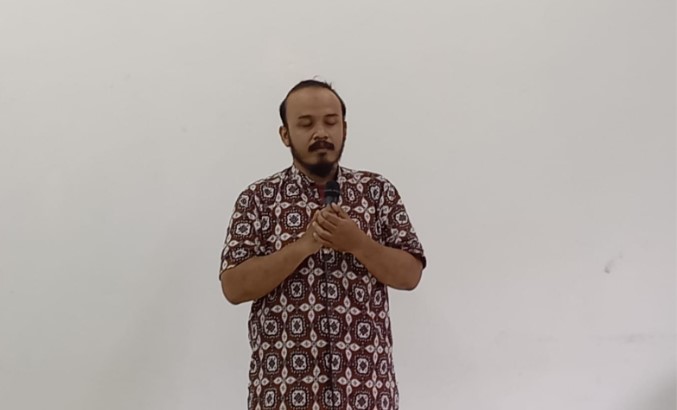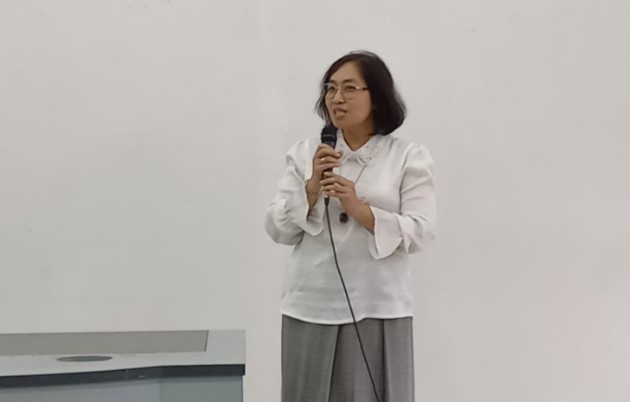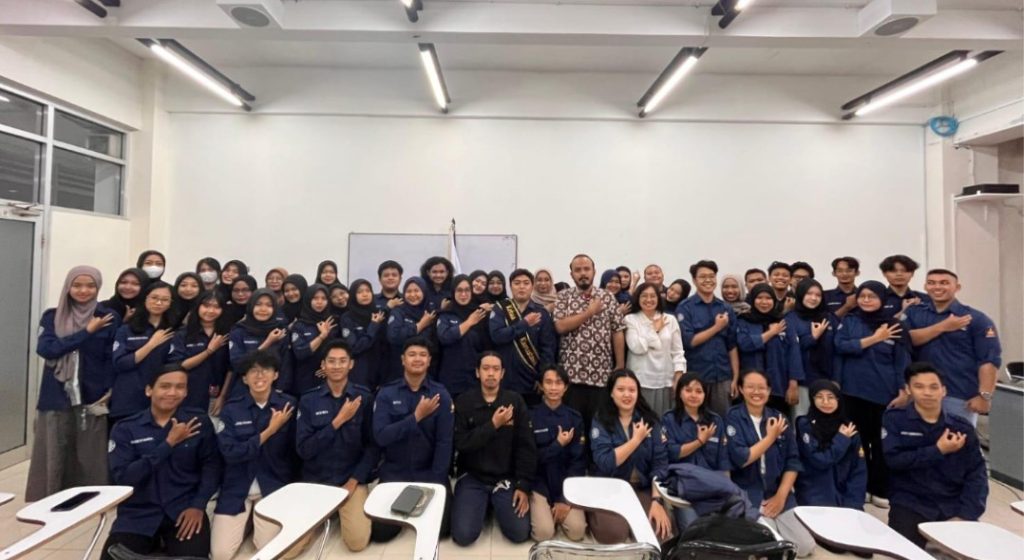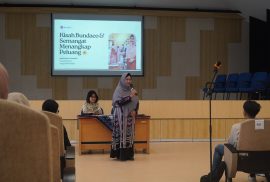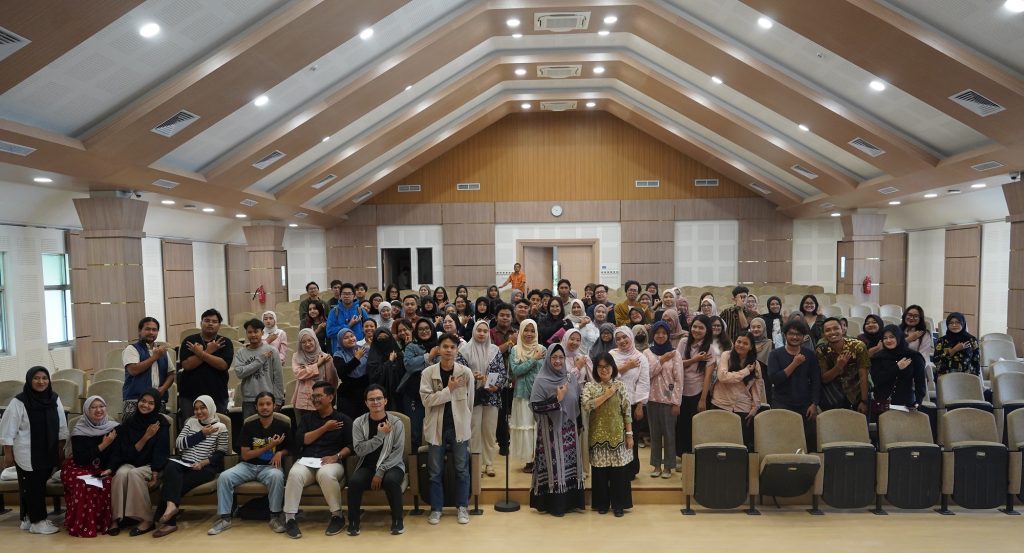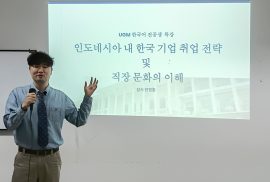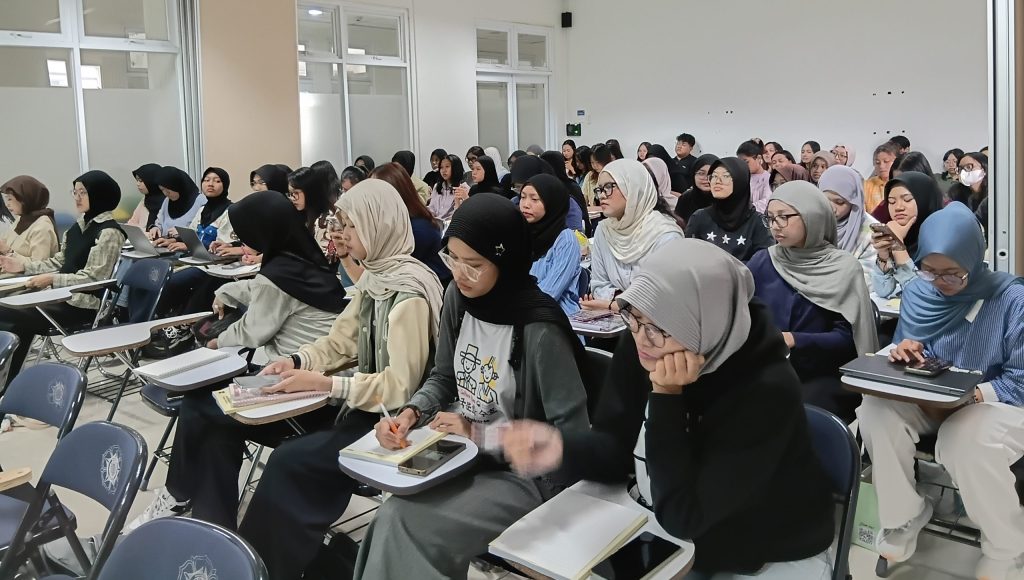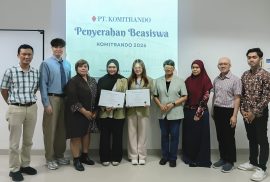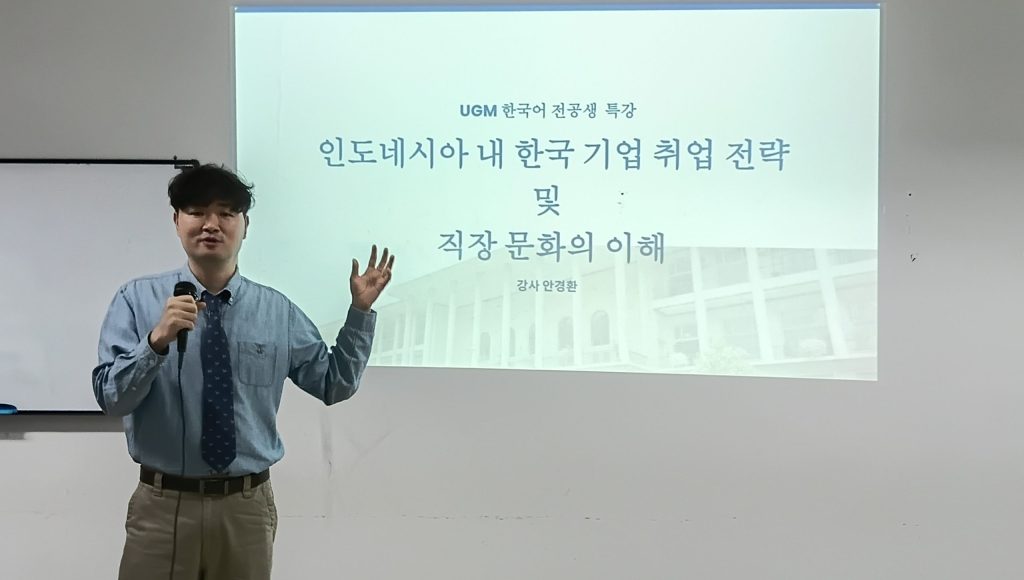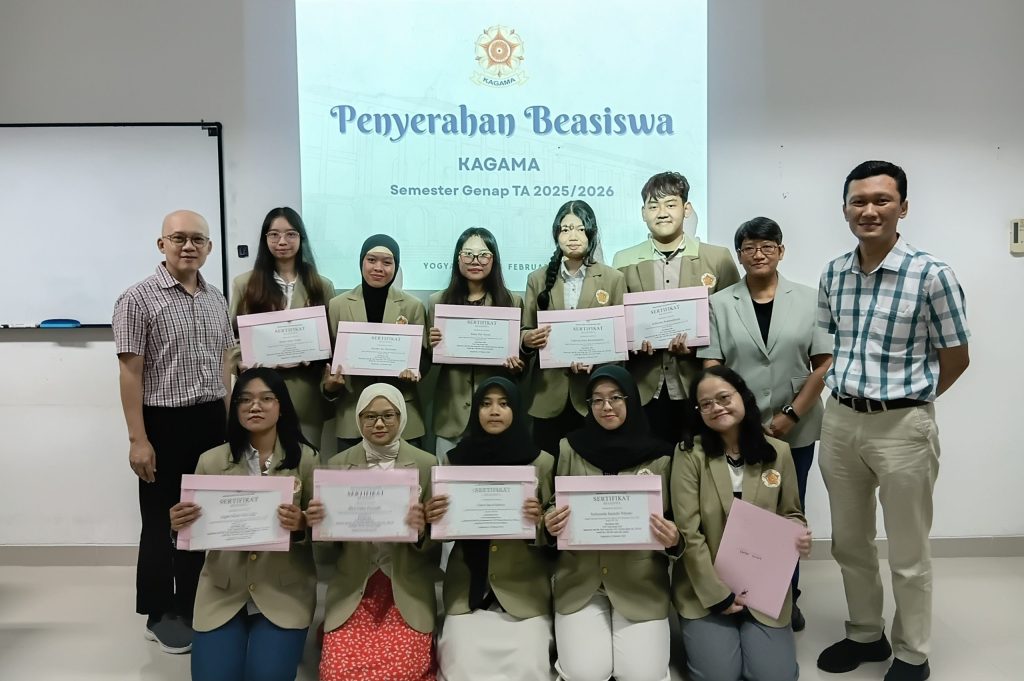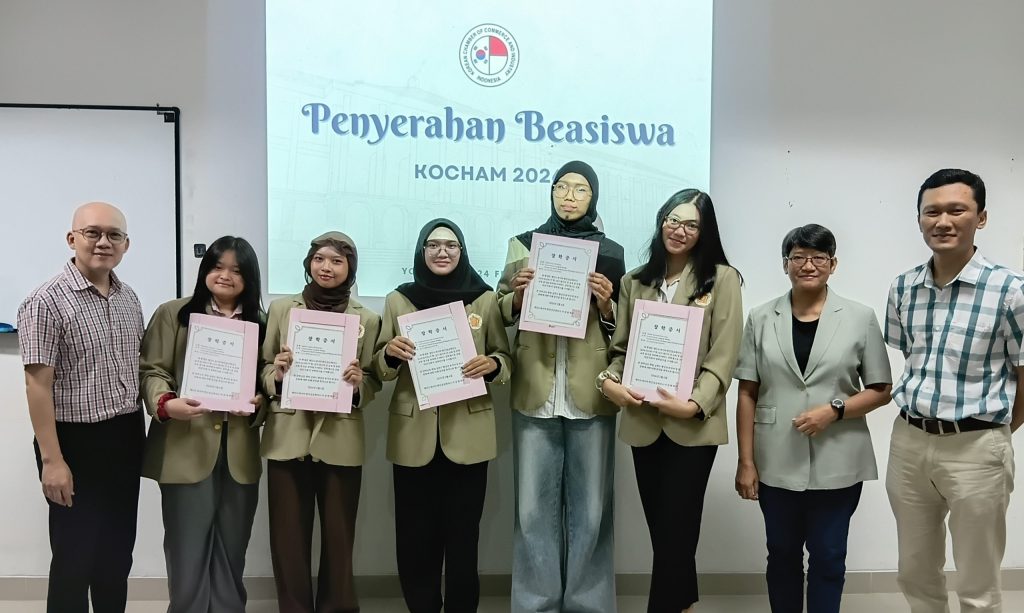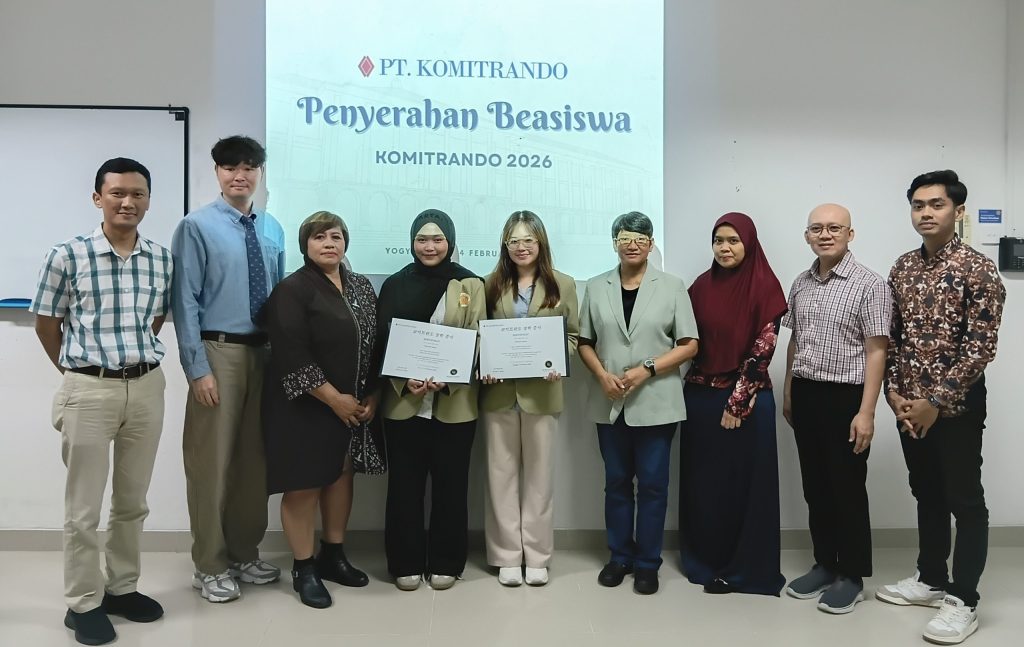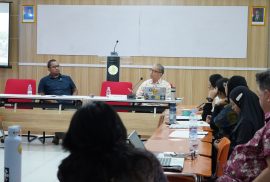The Student Association of the Department of Javanese Language, Literature, and Culture (HMJ Kamastawa) held a handover ceremony for the 2026/2027 management on Monday (06/23/2026) at Poerbatjaraka Building 203, Faculty of Cultural Sciences, Gadjah Mada University. The event was attended by the HMJ Kamastawa executive board for the 2025/2026 and 2026/2027 periods, as well as faculty representatives from the study program.
Also present at the event were the Head of the Javanese Language, Literature, and Culture Study Program, Dr. Sulistyowati, M.Hum., and the advisor to HMJ Kamastawa, Dr. Rudy Wiratama, S.I.P., M.A. The presence of the study program leaders emphasized the program’s support for the continuity of student organizations.
The event began at 4:15 PM and was hosted by Muhammad Bagus Ulinnuha. The series of activities began with the singing of the Indonesian national anthem and the Gadjah Mada hymn.
In his speech, Dr. Rudy Wiratama, S.I.P., M.A. emphasized the importance of maintaining achievements in a positive manner and building the widest possible network. He also advised the administrators to always apply the values of guidance, compassion, and nurturing, both with fellow administrators, seniors, and alumni.
Meanwhile, Dr. Sulistyowati, M.Hum. reminded the administrators to remain resilient in facing the dynamics and challenges of the organization. She emphasized the importance of coordination with lecturers and maintaining a balance between achievement, physical and mental health, and harmonious communication within the management.
The main procession of the event consisted of the reading and signing of the minutes by the Chair of HMJ for the 2025/2026 period, Dwiyan Teguh Darmawan, followed by the symbolic handover of office by the Head of the Study Program. Next, the inauguration script was read by Dr. Rudy Wiratama, S.I.P., M.A., and the oath of office was led by the Chair of HMJ for the 2026/2027 period, Wreksi Awinanggya Pinandhita.
The event then continued with a symbolic handover of positions to the Kamastawa HMJ management, a message and impressions from the 2025/2026 HMJ period, and a speech from the Chair of the 2026/2027 HMJ period. The series of activities was closed with a group photo session to capture the moment of togetherness.
The handover ceremony for the Kamastawa Student Association for the 2026/2027 period is an important moment for the new board to continue and improve the quality of the organization. It is hoped that the new board will be able to implement flagship programs optimally. Thus, HMJ Kamastawa can continue to play an active role, making positive contributions to nguri-uri ‘preserving’ and ngurip-urip ‘revitalizing’ Javanese culture, as well as maintaining the good reputation of the Javanese Language, Literature, and Culture Study Program. Congratulations and success to the HMJ Kamastawa management for the 2026/2027 period.
Author: Haryo Untoro
Editor: Haryo Untoro

